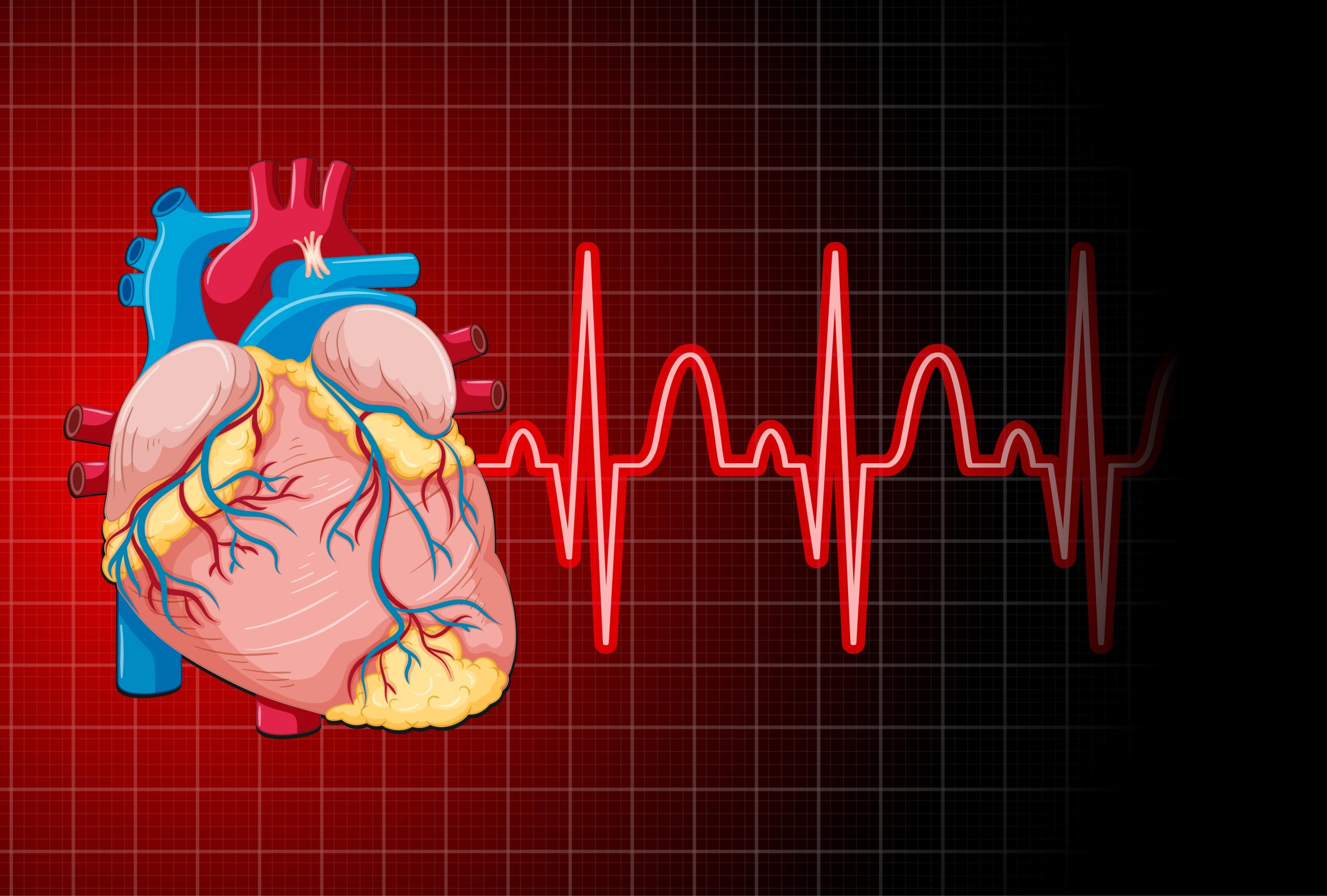How Dr Garcia, MD helps patients protect heart health
How Dr Garcia, MD helps patients protect heart health
Blog Article
The Function of Cardiology in Preventive Health And Wellness and Health Providers
Cardiology is significantly acknowledged for its crucial role in preventative health and health services. By emphasizing positive strategies, cardiologists intend to minimize the occurrence of cardiovascular illness. This approach incorporates risk evaluations, way of life changes, and normal screenings. With these initiatives, individuals are urged to take control of their heart wellness. Nonetheless, the integration of modern technology and partnership with other doctor raises important inquiries regarding the future of preventative care. What might this advancement involve?

Comprehending Preventative Cardiology
Comprehending preventative cardiology entails acknowledging its necessary function in lowering heart disease danger through positive procedures. This branch of medicine stresses the importance of way of living modifications, consisting of diet, exercise, and stress and anxiety management, to avoid heart-related problems prior to they occur. It advocates for regular health and wellness screenings and education to empower people in making educated wellness choices.Preventative cardiology additionally incorporates the identification of threat variables such as high blood pressure, diabetes, and high cholesterol, urging individuals to take on much healthier routines - Cardiology care. By focusing on avoidance instead of reaction, this strategy not just improves private health and wellness outcomes however likewise reduces the total problem on healthcare systems. On top of that, it promotes collaboration among medical care patients, neighborhoods, and service providers, promoting an alternative approach to heart health and wellness. Inevitably, comprehending preventative cardiology inspires a shift towards a positive state of mind, prioritizing long-term health and wellness and health
Risk Evaluation and Management
Risk analysis is vital in identifying cardio risks that can bring about significant health issues. Reliable management of these dangers commonly includes implementing way of life modification techniques, such as boosted diet and raised exercise. By understanding and attending to these elements, individuals can significantly decrease their chance of creating cardio conditions.
Recognizing Cardiovascular Threats
Many variables add to cardio health, determining cardio risks is important for reliable avoidance and management. Cardiovascular threat assessment entails reviewing various aspects, consisting of family history, age, gender, and lifestyle practices such as cigarette smoking and physical lack of exercise. In addition, wellness conditions like hypertension, diabetic issues, and high cholesterol significantly affect an individual's danger account. Healthcare professionals make use of tools such as risk calculators and biomarker tests to measure these dangers and stratify clients accordingly. Early identification makes it possible for targeted treatments, assisting people toward suitable administration strategies. By acknowledging these risks, cardiologists can collaborate with clients to produce customized strategies that highlight tracking and positive treatment, ultimately reducing the chance of adverse cardiovascular occasions.
Lifestyle Alteration Approaches
Reliable way of living adjustment approaches play a crucial duty in handling cardio health and reducing affiliated dangers. These methods include dietary modifications, increased physical task, and cigarette smoking cessation. A heart-healthy diet plan rich in fruits, vegetables, whole grains, and lean healthy proteins can substantially lower cholesterol degrees and blood stress. Regular physical task, such as aerobic exercises, strengthens the heart and boosts blood circulation. Furthermore, giving up smoking cigarettes reduces the threat of cardiovascular disease and enhances general health. Medical care professionals commonly utilize threat assessment devices to customize these adjustments to individual needs properly. By incorporating way of living modifications right into regular care, cardiologists can empower people to organize their heart wellness, inevitably causing enhanced end results and lowered healthcare costs.
Lifestyle Modifications for Heart Wellness
To maintain ideal heart health, individuals have to adopt a range of way of living modifications that greatly lower the chance of cardiovascular conditions. A well balanced diet regimen rich in fruits, veggies, whole grains, and lean proteins is necessary. Reducing hydrogenated fats, trans fats, and sodium intake can considerably reduce cholesterol levels and blood stress. Routine exercise, such as quick walking or biking for a minimum of 150 minutes per week, also plays a substantial function in boosting and enhancing the heart circulation.Additionally, handling tension with strategies like mindfulness and meditation can have a favorable impact on heart health. Preventing cigarette products and limiting alcohol usage even more contribute to a healthier cardio system. Preserving a healthy weight is crucial, as excessive weight is a major risk aspect for cardiovascular disease. By including these way of living modifications, people can cultivate not only their heart health and wellness yet additionally their general well-being, causing a more active and dynamic life.
The Relevance of Regular Testings
In addition to lifestyle modifications, routine screenings play a necessary function in keeping heart wellness and avoiding cardiovascular diseases. These evaluations are significant for identifying threat factors such as high blood pressure, high cholesterol, and diabetes mellitus, which can cause significant problems if left untreated. Cardiologists recommend regular analyses to keep track of heart feature and discover problems early, permitting timely intervention.Screenings, which may include blood electrocardiograms, echocardiograms, and examinations, give crucial data for personalized therapy plans. This aggressive technique encourages individuals to make enlightened choices regarding their health and wellness, enhancing total health. Furthermore, regular exams foster a stronger doctor-patient relationship, encouraging open dialogue concerning heart health worries.
Integrating Innovation in Preventative Care
Embracing technology has transformed preventative care in cardiology, providing innovative tools that enhance patient monitoring and engagement. Wearable devices, such as smartwatches and physical fitness trackers, allow individuals to monitor their heart rate, task degrees, and overall wellness metrics in real-time. These devices not just provide instant responses however likewise promote data showing doctor, permitting prompt treatments when necessary.Additionally, telemedicine has actually visit this web-site become a noticeable attribute in cardiology, enabling remote appointments and follow-ups. This access assures that individuals can receive care without the obstacles of traveling and time restrictions. Mobile health applications more assistance preventative official site procedures by supplying customized insights and suggestions for medication adherence, way of living changes, and arranged testings.
Patient Education And Learning and Empowerment
Empowerment via education and learning is vital in the domain name of preventative cardiology, as educated clients are most likely to take part in positive wellness actions. By comprehending their cardiovascular wellness, clients can make enlightened decisions regarding way of living alterations and adherence to therapy strategies. Educational efforts, including workshops, informative handouts, and on-line sources, offer to enhance patient knowledge regarding risk factors such as hypertension, cholesterol degrees, and the value of routine exercise.Moreover, encouraging clients fosters a collective method to wellness management. When individuals are mindful of their problems and the implications of their selections, they are most likely to join conversations with doctor, leading to tailored care approaches. This partnership not only advertises liability however likewise boosts motivation for maintaining a heart-healthy way of living (Cardiology). Ultimately, individual education and learning is a cornerstone of preventative cardiology, equipping people with the devices essential to organize their cardiovascular health and wellness and well-being
Collaborating With Other Healthcare Professionals
Effective patient education prepares for collaborative efforts amongst healthcare experts in the field of preventative cardiology. Cardiologists, primary care doctors, nutritionists, and mental wellness specialists should operate in synergy to maximize patient results. By sharing approaches and understandings, these professionals can produce comprehensive care strategies that resolve both physical and mental elements of heart health.Regular interdisciplinary conferences foster interaction, guaranteeing that all staff member are informed concerning person progress and difficulties. This partnership facilitates prompt interventions and changes to therapy plans, improving the performance of preventative measures.Furthermore, integrating technology, such as shared electronic health and wellness documents, boosts data availability and streamlines sychronisation efforts. This holistic technique not only improves client adherence to lifestyle modifications however also encourages people to organize their cardiovascular health. Eventually, cooperation amongst healthcare specialists is vital in advertising a proactive method to cardiovascular disease prevention.
Often Asked Concerns
What Is the Distinction In Between Cardiology and General Healthcare?
Cardiology focuses on identifying and dealing with heart-related conditions, while basic healthcare includes a wider variety of medical solutions addressing various health concerns - Dr Garcia. Each plays an important function in maintaining overall health and health
Just how Commonly Should I See a Cardiologist for Preventive Treatment?
The frequency of cardiologist check outs for preventative treatment differs based on individual threat aspects. Usually, yearly assessments are recommended for those with status quo, while others might require much less regular check-ups based on overall heart health.
Can Stress Effect My Heart Health Dramatically?
Anxiety can considerably affect heart health by adding to hypertension, swelling, and unhealthy way of life choices. People experiencing chronic anxiety might go to enhanced threat for cardiovascular problems, necessitating reliable anxiety management techniques for far better heart wellness.
Are There Specific Heart Disease I Should Understand?
People ought to know problems like hypertension, coronary artery illness, heart failure, arrhythmias, and valvular heart problem. Identifying these conditions early can cause far better administration and boosted overall heart health and wellness results.

What Are the Prices Linked With Preventative Cardiology Solutions?
The prices connected with preventative cardiology services can differ considerably. Elements such as location, sort of solution, and insurance policy protection impact overall expenses, making it important for people to look for comprehensive information particular to their circumstances. With these efforts, patients are encouraged to take control of their heart wellness. It promotes for regular wellness screenings and education and learning to equip individuals in making enlightened wellness choices.Preventative cardiology additionally includes the identification of threat elements such as high blood pressure, diabetes, and high cholesterol, prompting individuals to take on healthier behaviors. In enhancement, it promotes cooperation among medical care neighborhoods, clients, and carriers, cultivating a holistic method to heart wellness. Regular physical task, such as brisk strolling or biking for at least 150 mins per week, additionally plays a significant role in enhancing and strengthening the heart circulation.Additionally, handling anxiety with methods like mindfulness and the original source reflection can have a favorable influence on heart health. Cardiology specializes in identifying and dealing with heart-related problems, while basic wellness care includes a more comprehensive array of clinical solutions dealing with numerous wellness concerns.
Report this page